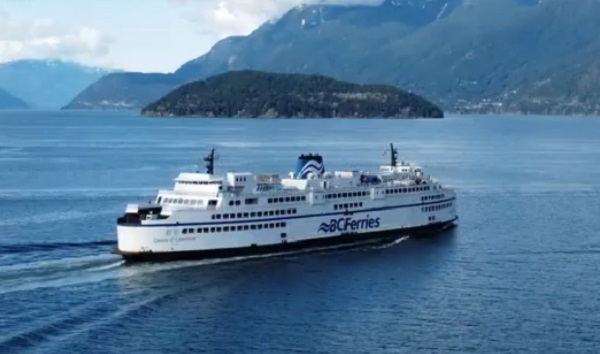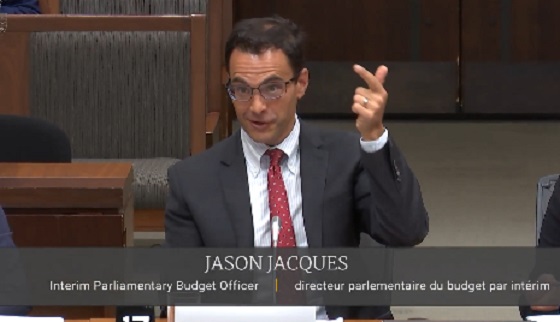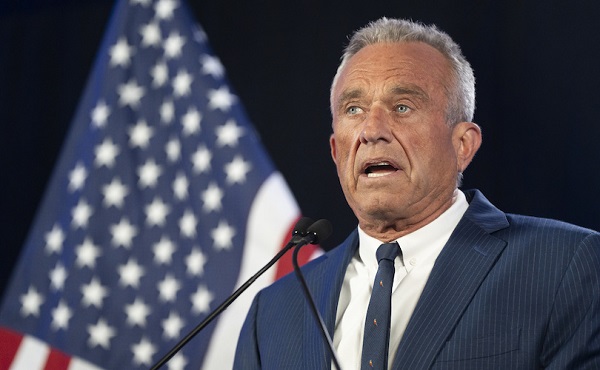By Scott McGregor
A BC Ferries contract with China risks national security, public transparency and Canadian safety. Why are we still looking the other way?
Scott McGregor exposes how a billion-dollar BC Ferries deal with a Chinese shipyard reflects a deeper failure: Canadian institutions are shielding Beijing’s interests—at taxpayers’ expense—while ignoring glaring national security risks.
BC Ferries, the taxpayer-owned company operating ferry services along the B.C. coast, didn’t just sign a billion-dollar shipbuilding contract in China; it handed Beijing leverage over Canadian infrastructure.
Behind the bureaucratic talk of cost and efficiency lies a deeper scandal: a taxpayer-funded deal that puts national security, public transparency and Canadian citizens at risk, all to benefit a hostile regime.
When theBreaker.news, an independent investigative outlet in BC, filed freedom of information requests to uncover the contract’s details, BC Ferries refused to release a single page. The excuse? Disclosure might threaten its financial position, safety and the “interests of third parties.”
This refusal didn’t happen in a vacuum. It came the same day Chinese President Xi Jinping stood next to Russian President Vladimir Putin and North Korean leader Kim Jong Un in Beijing, giving a vivid display of authoritarian solidarity.
BC Ferries’ secrecy is bad optics. It flies in the face of multiple rulings by the B.C. Information and Privacy Commissioner, who has repeatedly upheld the public’s right to see contracts signed by public bodies. Cities and Crown corporations have been ordered to disclose their agreements with FIFA, the international soccer governing body, and with B.C. Place Stadium.
In fact, public institutions have disclosed deals far less sensitive than this one. Yet BC Ferries, propped up by a $1-billion loan from the Canada Infrastructure Bank (CIB), insists its Chinese shipbuilder must remain shielded from scrutiny. The result isn’t protection for taxpayers. It’s protection for Beijing’s leverage.
And that’s just the beginning. The more dangerous problem is legal. Canada has no bilateral agreements with China to guarantee fair legal treatment of its citizens. No non-prosecution provisions. No mutual legal assistance mechanisms. No safety net.
At home, corporations can sign remediation agreements to avoid prosecution if they cooperate and commit to reforms. But those agreements stop at Canada’s borders. They offer no protection for Canadians working in Weihai, the Chinese city where the vessels are built. If a dispute arises or Beijing flexes its power, those Canadians could face arbitrary detention, exit bans or national security charges. In a diplomatic crisis, they could become pawns.
This isn’t a theoretical risk. Michael Kovrig and Michael Spavor spent nearly three years in Chinese prisons after Canada detained Huawei executive Meng Wanzhou. That episode exposed the Chinese Communist Party’s playbook of hostage diplomacy. It should have ruled out any deal that places Canadian citizens or Crown assets under Chinese jurisdiction.
Yet even with that memory still fresh, the arrangement continues, quietly, with little public debate.
What we’re witnessing is a textbook case of hybrid warfare. Economic deals masked as trade. State financing disguised as commercial contracts. Political leverage embedded in infrastructure projects. And Canada, still clinging to the outdated promises of globalization, is paying for its own exposure.
At the moment when Beijing is supplying components for Russia’s war machine, Ottawa is greenlighting the outsourcing of core coastal infrastructure to a state-owned Chinese shipyard.
Parliament appears to be taking notice of the situation. The House of Commons Transport Committee has initiated a review of the $1 billion federal loan associated with the BC Ferries deal. The expected witnesses for this review include the CEO of the corporation, the CEO of the Canada Infrastructure Bank (CIB), Transport Minister Chrystia Freeland and Infrastructure Minister Gregor Robertson.
The review follows political pushback, including criticism from Freeland, who resigned from cabinet on Sept. 16, and had previously called the outsourcing decision “disappointing.”
This review is necessary because BC Ferries is a Crown-owned utility, governed by an NDP-appointed board and funded through federal support.
When a public entity conceals the terms of a massive contract and hands work to a Chinese state-controlled firm, it’s not just acting secretively. It’s normalizing a culture of opacity that weakens Canadian sovereignty and shields foreign interests from democratic accountability.
BC Ferries defends the deal by pointing to its projected economic benefits: four new major vessels, hybrid propulsion systems, 50,000 job-years and more than $4.5 billion in forecasted economic output.
But those figures come at the cost of strategic blindness.
Time and again, Canadian policymakers treat China like an ordinary business partner, even as the Chinese Communist Party uses law, finance and supply chains as tools of global influence. While other democracies are pulling back from partnerships with Chinese state firms, Canada looks the other way, tethered to outdated trade assumptions and short-term economics.
The remedy starts with sunlight. Contracts signed by public bodies must be disclosed, especially when they involve authoritarian regimes. But transparency is only the first step.
Canada must adopt a hybrid warfare lens for every major economic decision. That means asking hard questions: Does this deal strengthen or weaken our position? Does it open the door to foreign influence? Does it endanger Canadians abroad? Short-term savings can breed long-term dependency, and in China’s case, geopolitical exposure.
BC Ferries’ shipbuilding contract with China isn’t just a procurement mistake. It’s a warning.
Without legal safeguards, public oversight and strategic foresight, Canada isn’t just buying ferries; it’s handing over control.
And Canadians deserve better.
Scott McGregor is an intelligence consultant and co-author of The Mosaic Effect. He is a senior fellow at the Council on Countering Hybrid Warfare and writes here for the Frontier Centre for Public Policy.















